Diagnosed with CTE and crippled with anxiety, depression and confusion, former professional rugby player Billy Guyton found the foresight and generosity to donate his brain to science. To the medical profession and future generations, it's a gift. To NZ Rugby, it's surely an alarm bell. Mark Crysell reports.
The clock started ticking as soon as Billy Guyton died.
“The faster we can get the brain the better,” says Professor Maurice Curtis, the deputy director of the Neurological Foundation’s Brain Bank.
Guyton, New Zealand's first professional rugby player diagnosed with CTE, died after struggling with his mental health. His whānau now ask where rugby was when he needed it most. (Source: Sunday)
Five years earlier Billy Guyton, a professional rugby player, had pledged to donate his brain after too many concussions forced him to retire from the game he loved.
“We aim to have the brain in the brain bank or preserved in some way within 24 hours,” says Curtis. “We want to get the brain set and to study the brain cells in exactly the way that they were when the person died.”
Billy Guyton died of a suspected suicide in his Nelson home in May 2023. He was 33 years old.
“His lowest point would be probably in the last months of his life,” says his dad, John Guyton.

'He just couldn't handle the light'
His oldest son was crippled with anxiety, depression, mental confusion and serious memory lapses.
“He had a wall cavity in his wardrobe where he had a hole cut out of the wall. And he’d sit in there, it was about three foot wide,” says John. “He just couldn't handle the light, couldn't handle life. And just used to sit in there until he could try and pull himself together to come out.”
Ten months later, Professor Curtis told John and the rest of the whanau that they’d found Stage 2 Chronic Traumatic Encephalopathy or CTE, a degenerative brain disease neuroscientists believe is linked to head knocks and contact sports.
It was a diagnosis that shocked Curtis. “To see even low-stage CTE in a young person is significant because we know it's progressive, it will lead to dementia. And so that's impacting on a young person's life, when they are dreaming and aspiring to do the next thing.”

CTE a game changer
Billy Guyton wanted to be an All Black but being the first New Zealand professional rugby player to be diagnosed with CTE may turn out to be even more significant to the game here.
It’s a diagnosis that comes as World Rugby grapples with a lawsuit from hundreds of ex-players, including former All Black Carl Hayman who say administrators failed to protect the players from head knocks.
CTE has forced American Football to pay out over a billion US dollars in compensation to former players and changed the way the game is played, could the same be about to happen to our national game?
A six-generation legacy
Take a walk with John Guyton down the main street of Waimate, South Canterbury, and you can see why there was no way Billy Guyton was ever not going to play rugby.
“This is Nana Stelle,” says John, standing in front of a large mural of a grey-haired woman pinning sky blue Waimate rugby jerseys to a washing line. “She washed the Waimate rugby jerseys for 35 years. She’s Billy’s great grandmother.”

Guyton blood and bone is part of the soil and green grass of Manchester Park, the local rugby ground.
“We’re on our sixth generation of rugby players, the young ones now,” says John. "So yeah, we’ve been here for a long time.”
He had Billy down at the park as soon as he could, at four years old. “You could barely see his legs, his big, long socks, baggy shorts,” says John. "An incredibly proud day, to me that was my little All Black, he was coming and that was my son.”

John has the long lean body of a man who once sheared 500 ewes in one day. He’s lived a life, but his voice breaks often when he talks of his son. “That day was incredible, but in saying that I had no idea I was leading my little boy to an early death.”
Growing up, Billy just loved the game, and he was good at it. “A lot of people called him the golden child,” says his mum, Stacey Dunn.
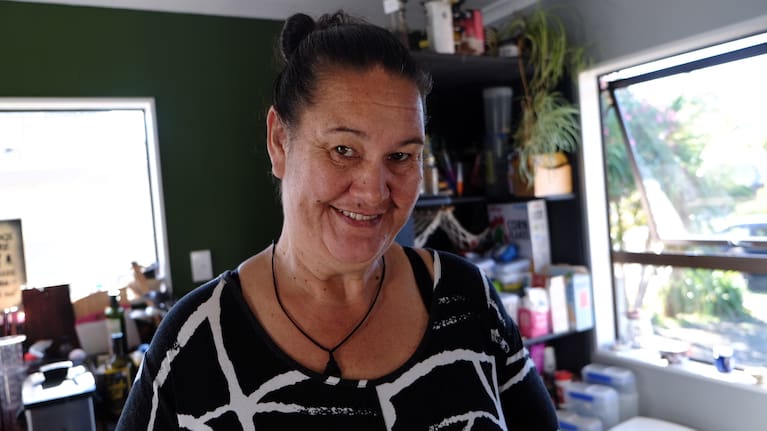
A halfback, the number 9 on his back, barking at the heels of the forwards and setting the backline free, Billy rose through the rep ranks of New Zealand Rugby’s various divisions. North Otago, the Heartland XV. Onto the Tasman Makos, a Cinderella team that exploded from nowhere to win the ITM Cup provincial championship in 2013.
“He loved the Makos,” says Stacey. "They were his everything.”
Next Super Rugby, the Hurricanes, Crusaders and Blues.
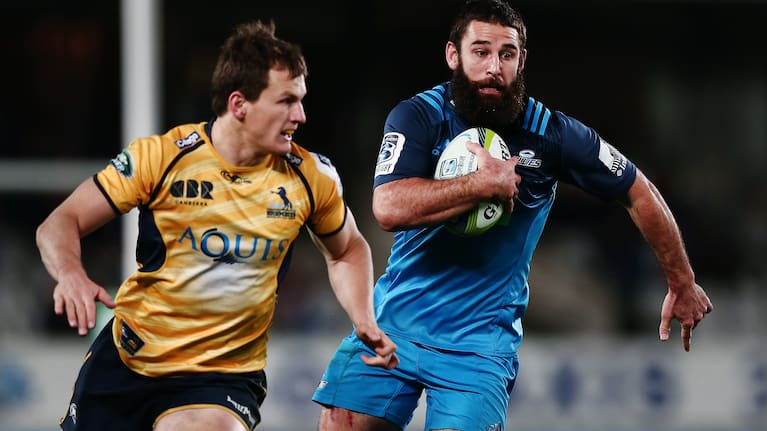
And in 2016, Billy Guyton, Ngāpuhi, Ngāti Pikiao, and Ngāti Raukawa, became a Māori All Black. “To be recognised, making the Māori All Blacks was huge for me and my family," says Stacey.
But mentally Billy was struggling. He described his symptoms in a rambling two-hour Facebook video in 2018.
“Thoughts go mad,” he says. “My head's going all over the place. I learned to walk at night. But at night because I knew I couldn't sleep. The thoughts of constant suicide, the planning of how it's going to happen, how you're going to do it.”
John Guyton says, “He was really confused about what was going on for him in his head. He didn't understand a lot of things.”
Seventeen concussions
Rugby’s known as a contact sport for good reason – play the game, especially at the top, and you’ll inevitably cop blows to the head.
Billy’s first concussion came playing first XV rugby in Christchurch. His medical records show he had 17 concussions during his career.
“That’s significant,” says Curtis.
The autopsy showed all those blows had altered the shape of his brain. Curtis says the two hemispheres of Billy's brain, which are normally fused together, had actually separated, due to the repeated head knocks.
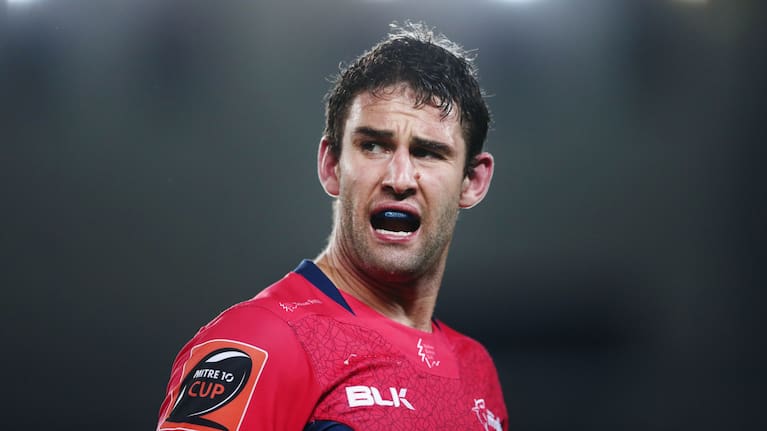
But neuroscientists believe it’s the sub-concussive blows, the thousands that players take over the course of a career, that take their toll when it comes to CTE. Blows that elongate and twist the brain inside the skull leading to the buildup of tau, an abnormal protein which causes CTE and is also found in the brains of those with Alzheimer's disease.
Research worldwide on over 1000 brains with CTE shows sufferers go through major personality changes, depression, anxiety and eventually dementia. It can only be diagnosed in death – while he was still alive Billy was diagnosed with bi-polar disease.
His Facebook video talks about how the medication was affecting him. “I was taking pills for three to four days and I was in a bad, really bad, low and then high. So, it was really weird, but I couldn't sleep either.”
Professor Curtis says it’s quite possible that Billy had both CTE and bipolar disorder, but that he certainly had symptoms of CTE. “Depression, anxiety, mood swings, those sorts of things are absolutely common in CTE.”
Reaching out for help
Billy’s paranoia came to a head when he was playing for the Auckland Blues in the 2016 and 2017 seasons.
“I was in a very negative state about why they were being negative towards me; I was making up stories in my own head, what was I doing?” he says in the video.
As he continued to struggle, Billy says he sought help and was called in to speak with some of the Blues leadership team.
“Then got called into few of the coachs' office and they said, 'Bill you just got to leave your sh** at home, okay,” he said in the video. “You think, well, c**t if you knew what was going on in my head, you'd f***ing know, you wouldn't be able to leave it at home JESUS and I almost wanted to jump over the table and punch them.”
A spokesperson for the Blues says that since Billy’s video the management involved have left and his allegations can’t be proved or disproved. Their focus is making sure all players are supported both mentally and physically.
But the question no one was asking while Billy was still playing was, were the number of serious head knocks he took affecting his mental health?

“Why wasn’t that help there for him?”, says Stacey, through tears. "He called, cried out, he asked, he went to so many different places for help and got told, 'just have to deal with it'.”
In 2018, Billy Guyton retired from rugby. His head couldn’t take the punishment anymore; three concussions in his last month alone, playing for the Tasman Makos.
The premature end to his career caused by injury meant he was now eligible for a payout from New Zealand Rugby.
Nelson lawyer and former Tasman Rugby Union Director Craig Morice took on his case pro-bono. “Billy, at that time, wasn’t healthy, he wasn’t in a fit state in my opinion,” he says. "There’s no way he could have navigated that process by himself.”
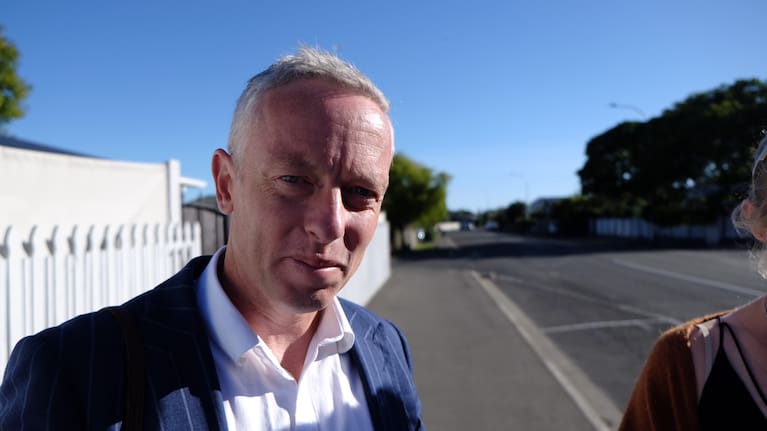
Morice has been a rugby player, and an administrator – he still refs the game. For him, alarm bells were ringing. “Billy’s erratic behaviour and anxiety was something that seemed to correlate with what you read about with people with CTE,” he says.
'That was it – you're on your own'
So, when they sat down to draw up his will, Morice made a suggestion to Billy. “Billy was giver,” he says, “so I discussed with him whether he wanted to consider giving the ultimate gift, which was donating his brain to the Brain Bank. And Billy was conscious that he didn't want other former players to have to go through what he was going through.”
Billy's mates reckon life was hell for him after giving up the game he loved. At one stage he asked his mum, Stacey, to come up from Christchurch to Nelson to look after him. “Once he left rugby that was it, you're on your own”, she says. "There’s no more. Nothing. You're nobody.”
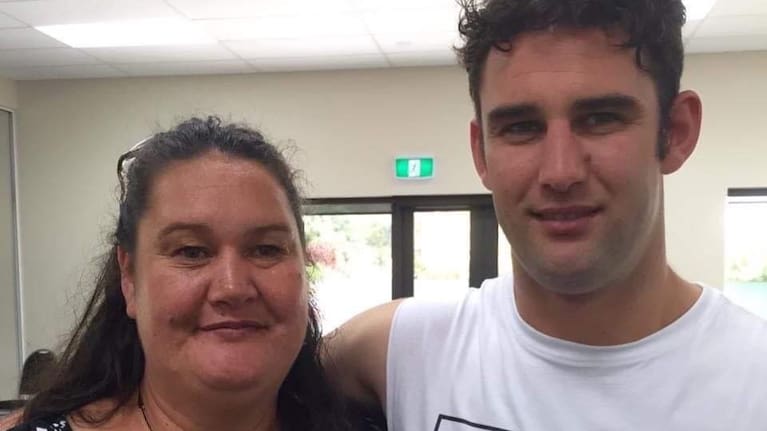
Billy picked up a job helping coach the Tasman Makos Women’s team with Mel Bosman, a former Black Fern.
“He lived with constant migraines,” she says. "Where we worked in the office, we had to rip the lights out of our office and work in the dark, so Billy could work.
But what drove him was player welfare.
“He was adamant he had CTE, and he says, 'oh I’ve donated my brain to the Brain Bank, and I want to do good with it'," says Bosman. “I want to tell my story and let the world know to give the players the opportunity to learn and be educated like he wasn’t.”
Billy Guyton had to die to prove he was right about what was going on inside his head.
'We acknowledge there's an association'
The first New Zealand professional rugby player to be diagnosed with CTE, he poses some hard questions for his former employers, NZ Rugby.
Four years ago, when I first started looking into contact sports and brain damage, I asked NZ Rugby’s CEO Mark Robinson if he accepted the links between head knocks and CTE? “It's simply too early,” he said. "We need to do more research.”
A growing consensus of neuroscientists, and research from the world’s leading brain banks and universities suggests the link has been proven.
By 2023, we told the story of Justin Jennings, a former Bay of Plenty rugby player living in the US who became the first New Zealander diagnosed with CTE, and again NZ Rugby said it was too early to make the link.

But three weeks ago, the day after Billy Guyton’s CTE diagnosis became public, Mark Robinson told 1News, “We feel a huge amount of sympathy to the family. We acknowledge there’s an association.”
Talking about an association between repeated head impacts and CTE is new, but NZ Rugby still refuses to accept that CTE causes symptoms such as depression, anxiety and dementia.
“There’s a lot more work to be done to prove there’s a stronger connection than there is at this time,” says Robinson.
“Billy’s employer had a duty to provide a safe workplace for Billy,” says Morice, “in its purest form, to ensure that an employee wouldn't leave the workplace with a long-term brain injury.”
NZ Rugby told us it takes its obligations to all players extremely seriously and is continually working to reduce the risks of concussions and head impacts.
But Billy Guyton's one-time lawyer Craig Morice is sounding a warning. “It’s almost like a tsunami or something that’s about to arrive," he says. "Some former players that I’ve dealt with have told me about a World Cup winning All Black who goes for walks around his neighbourhood and he can’t remember how to get home. There’s other stories of former All Blacks driving on a sunny day and turning the window wipers on, not by mistake, because they thought it was raining. Partners, wives, have talked to me about concern for their partners, their wellbeing.
Mel Bosnam says, “It’s not about you're trying to get compensation, or anything like that, trying to point the finger. Billy was not about that. He was about player welfare, and we’ve got to do something about it, we’ve got to be better at it as a sport.”
'I'm not losing another son'
Billy Guyton’s family want something meaningful to come from their loss.
“He wanted the world to know, or for New Zealand Rugby to know that it wasn’t just in his head, says Stacey. "These symptoms that are happening to him, he wanted to prove them wrong.”
“I haven't let Billy rest yet, not till his mission’s over,” says John Guyton. "His mission is for these boys to get help, for it to come out in the open. So as Billy’s dad, I’ll keep battling until we achieve this goal.”
John has a younger son, 9-year-old Blayne, as long and as lean as his dad and almost as sharp.
I asked John if he’d let Blayne play rugby, the game six generations of his family have played for Waimate.
“No. I’ve already lost one son and I’m not losing another one,” he says adamantly. “I just wish I had had the information when it came to Bill so that I could have made, as a responsible parent, made a decision. And encouraged my boy to play another sport.”
For more on this story watch Sunday, 7.30pm on TVNZ1 and TVNZ+
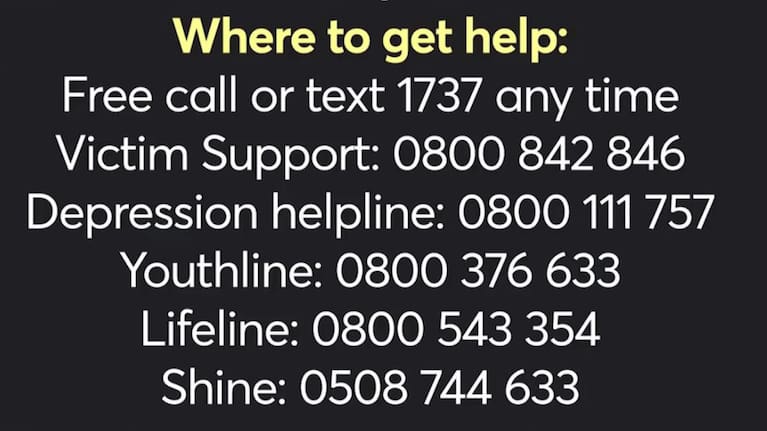




















SHARE ME